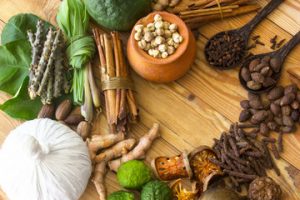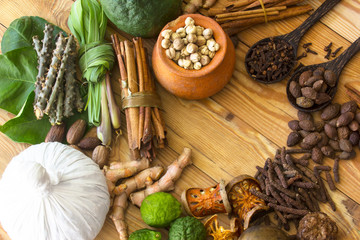Winter has arrived! Winter is synonymous with flu and contagious diseases. It is recognized by constant sniffing, running nose, and coughing. It is said that winter need not be this way. Winter is considered a bad season health-wise, but according to Ayurveda, it is actually the best season to improve your immunity. It’s not an immunity weakening season if you know how to use it to build and strengthen your immunity. Ayurveda Courses in Kerala is widely known, and people from different nations and cities visit ‘God’s Own Country’ to attend these courses.
First, you need to understand the concept of immunity in Maharishi Ayurveda if you want to understand how to improve immunity in the winter season. Bala is the ayurvedic word for immunity, which literally means “strength.” Bala does not only mean physical immunity, but it also includes psychological and spiritual immunity. Bala makes your body’s endurance against any disturbance to the physical, psychological, and spiritual areas. According to Ayurveda, immunity is related to digestion. When you have a good and strong digestion with a good appetite, then your immunity is strengthened. If your digestion gets weakened, your immunity is weakened.
If you often fall sick during winters and want to know how to keep yourself healthy then, read this article till the end.

Here are some of the Ayurvedic herbs to keep you warm in the winter season which can be found in your kitchen easily:
1. Turmeric
Turmeric is one of the most well-known and commonly used Ayurvedic spices. It is an herb that boosts your immunity, which is used to support your body’s healthy response to allergens. Various ailments like the common cold, dry skin, joint pains, and swellings are treated with this Ayurvedic herb.
This magical herb is a natural antiseptic and antibacterial agent that can be used as a good disinfectant. If you get a cut or burn, you can sprinkle turmeric powder on the affected area, and you will be surprised to see the instant healing.
WAYS TO INCLUDE TURMERIC IN YOUR DIET –
- Remember when your parents and grandparents suggested you to drink ‘Haldi doodh’ when you hurt yourself as a child. It was because it helped in healing the wound faster. One of the easiest ways to include turmeric in your diet is to have a glass of turmeric milk every day during winters. ‘Turmeric latte’ is getting famous in the west due to its health benefits.
- Using turmeric spiced ghee for cooking is another way to include turmeric in your diet. Melt some ghee, add turmeric powder to it and mix it well. Your turmeric spiced ghee is ready. Add it to your rice, dal or curry.
2. Tulsi
Tulsi is one of the magical Ayurvedic herbs that can be helpful for everyone. For this very reason, it is considered as the most sacred plant in the ancient Vedic Puranas. India is the birthplace of Ayurveda, so it is evident that Ayurveda Courses in India are famous for its authenticity. The courses are very useful for building resistance to respiratory ailments, considering its anti-asthmatic and anti-infective properties.
WAYS TO INCLUDE TULSI IN YOUR DIET –
- During winters, kick start your day with a refreshing cup of Tulsi green tea or black tea. You can also add a few drops of fresh ginger juice and honey to it to improve your health.
- Eat a few fresh Tulsi leaves every day to boost your immunity. Avoid chewing raw tulsi leaves.
3. Ginger
Ginger is used widely in Ayurveda, which is also considered a medicine. It’s well known for the digestive benefits that it provides. It has many other benefits ranging from fighting cold and flu to relieving joint pain. It also helps in boosting immunity and wards off many infections.
WAYS TO INCLUDE GINGER IN YOUR DIET –
- Having fresh ginger before lunch and dinner enhances digestion. Dip 2-3 slices of fresh ginger in a little salt and lemon juice and eat these before having your proper meal to aid digestion.
4. Mulethi
Mulethi is a heavy and sweet herb used to treat many disorders. It strengthens the body systems and increases immunity. It boosts the functioning of the nervous system and prevents aging.
WAYS TO INCLUDE MULETHI IN YOUR DIET –
- The most common way to include mulethi in your diet is to make a tonic by boiling a few sticks of Mulethi in water. You can also add Tulsi and Pudina leaves to it.
- If you have a bad cold, try Mulethi powder with honey as it is a powerful Ayurvedic tonic.
5. Neem
The health benefits of Neem are known for ages. It is used in Ayurvedic remedies as an antiseptic to fight viruses and bacteria. Neem is also good for urinary disorders, diarrhea, fever, skin diseases, burns, and inflammatory diseases.
WAYS TO INCLUDE NEEM IN YOUR DIET –
- Chew a few Neem leaves daily.
- If you are not able to chew Neem leaves, you can also include Neem oil in your daily diet. Neem oil is very beneficial to cure respiratory diseases and provides relief from cough.
Include these powerful herbs in your daily diet this winter, and you can meet a healthier version of yourself. Enjoy the winter season under the umbrella of Ayurveda rather than being hit by the winter chills.
Winter has come, so brace yourself with these Ayurvedic herbs and make them your shield to have a happy winter.
Author Bio:
Manmohan Singh is a passionate Yogi, Yoga Teacher, and a Traveller in India. He conducts Yoga Teacher Training in India in different cities. He loves writing and reading books related to yoga, health, nature, Himalayas, and Trekking in India.
ALSO READ:
10 Therapeutic Uses of Honey in Ayurveda
Diabetes and Mental Stress – An Ayurvedic Viewpoint
10 Simple Ways to Embrace Ayurveda Lifestyle
5 Essential Ayurvedic Tips for Stress Relief








